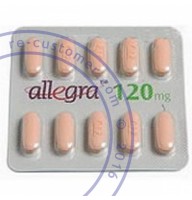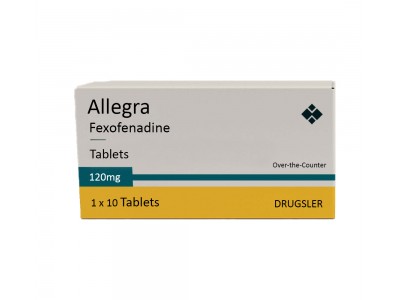Allegra (Fexofenadine) is a widely used antihistamine, often prescribed to treat symptoms of allergic reactions such as hay fever, seasonal allergies, and hives. While it is generally considered safe, it can come with a variety of Allegra side effects. These can range from mild symptoms to more concerning reactions. In this article, we will delve into what side effects may occur, how long they might last, and when you should consult a healthcare provider.
What Are the Common Side Effects of Allegra?
Like most medications, Allegra (Fexofenadine) can cause common side effects of Allegra that affect some individuals. These side effects are typically mild and may subside as your body adjusts to the medication. Some of the most frequently reported side effects include:
- Fexofenadine drowsiness: Although Allegra is a non-sedating antihistamine, some individuals may still experience a mild sense of drowsiness.
- Allegra dizziness: A feeling of lightheadedness or dizziness may occur, especially in the early stages of treatment.
- Fexofenadine nausea: Some people report feeling nauseous after taking the medication, particularly when taken on an empty stomach.
- Allegra and headache: Headaches can also occur as a result of using Allegra, which can sometimes be a result of dehydration.
Rare but Serious Side Effects
While most side effects are mild, there are some rare but serious Fexofenadine allergic reactions that require immediate attention. These may include:
- Severe skin reactions such as rashes, hives, or swelling of the throat.
- Difficulty breathing or swallowing.
- Chest tightness or irregular heartbeats.
If you experience any of these symptoms, it is important to seek emergency medical care immediately.
How Long Do Side Effects Last?
The duration of Fexofenadine side effects duration can vary from person to person. Generally, mild symptoms such as dizziness or nausea last for a short period, often subsiding after a few hours or days of use. However, if side effects persist or worsen, it is important to consult your healthcare provider.
Managing Allegra Side Effects
Many individuals wonder if they can continue using Allegra despite experiencing mild side effects. In most cases, the Allegra side effects list includes symptoms that are short-term and manageable. To help alleviate discomfort:
- Take Allegra with food if nausea becomes an issue.
- Drink plenty of water to reduce the chance of headaches or dizziness.
- If drowsiness occurs, avoid operating heavy machinery or driving until you understand how Allegra affects you.
Potential Drug Interactions
It's also important to consider Allegra drug interactions when taking this medication. Allegra can interact with certain drugs, including:
- Antacids containing aluminum or magnesium.
- Certain antifungal medications.
- Drugs that affect the liver.
Before starting Allegra, discuss any other medications you are currently taking with your healthcare provider to ensure safe usage.
Conclusion
Overall, while Allegra side effects are generally mild and well-tolerated by most individuals, it is important to be aware of the potential for side effects such as dizziness, nausea, and headache. If you experience any severe reactions or prolonged symptoms, consult your doctor for guidance. Always follow the prescribed dosage and consider how Fexofenadine side effects duration may impact your daily life. By being informed, you can manage these effects and use Allegra safely and effectively to treat your allergy symptoms.

